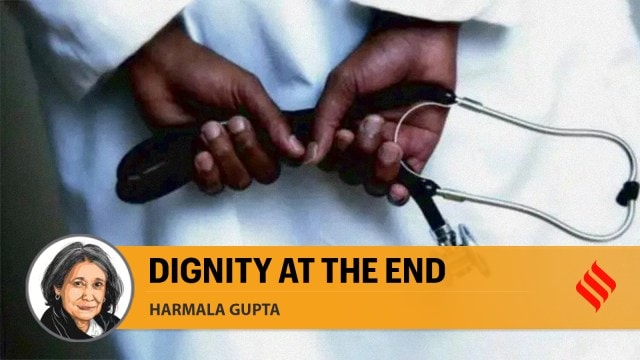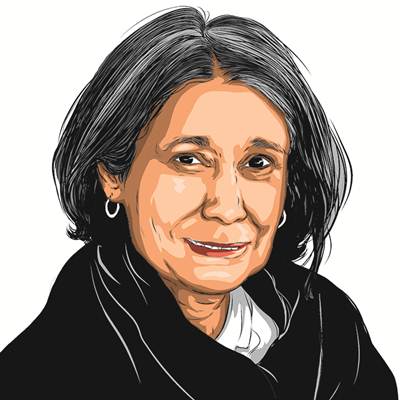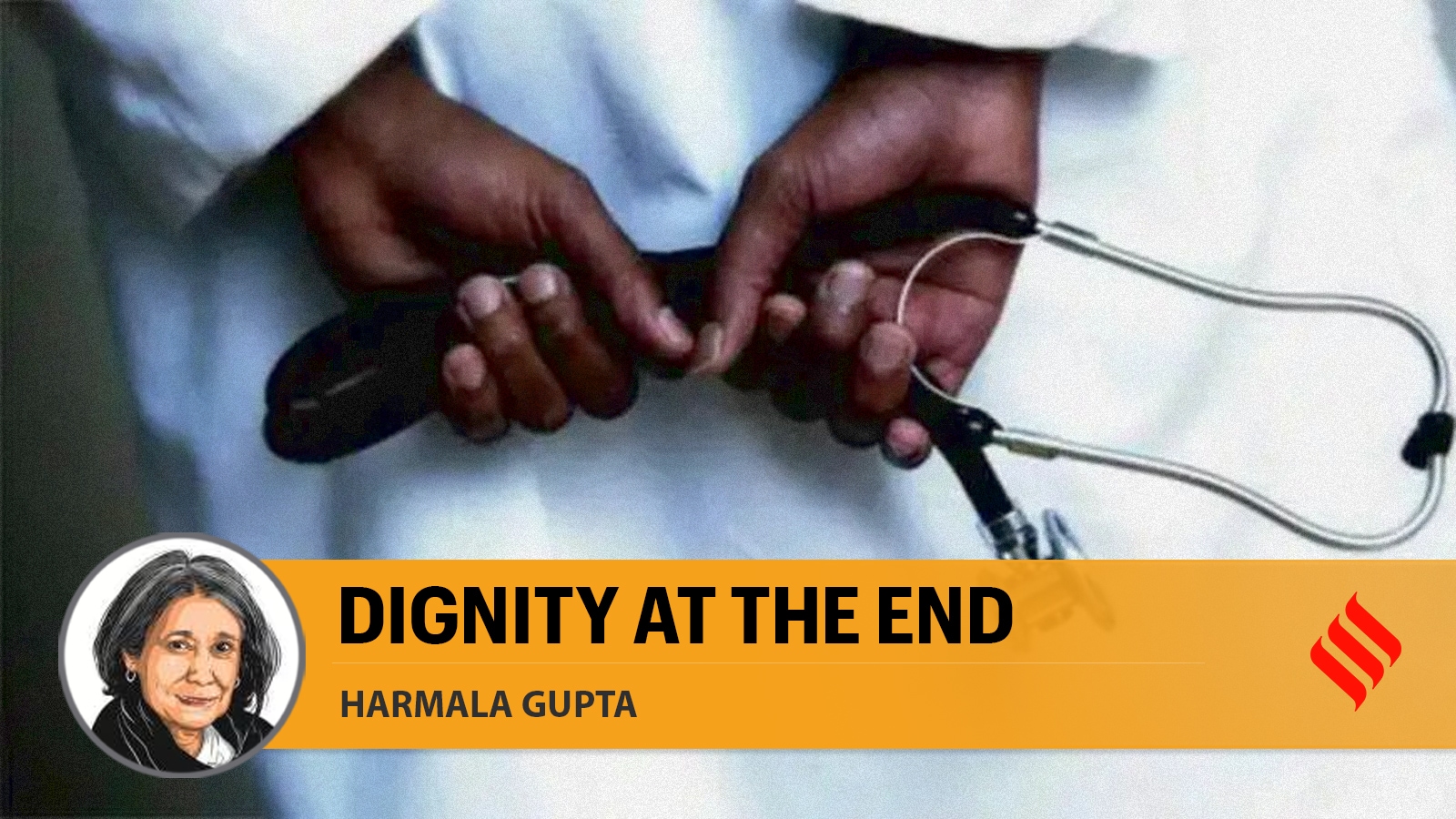

Dec 10, 2024 11:43 IST First published on: Dec 10, 2024 at 05:08 IST
Dying with dignity is one of the most vexing challenges we face today. The recent passage of a bill in the House of Commons in Britain highlights this concern. A cry has been raised by a section of its citizenry, which is resonating across the globe, asking for assisted dying for themselves and for their loved ones in the face of unbearable suffering.
Data from Oregon — it was the first state to legalise assisted dying for the terminally ill in 1997 — shows that two-thirds of those who asked for help to die last year had cancer. Not surprisingly, the main reasons for patients to seek this recourse are loss of dignity, fear of becoming a burden, inadequate pain control and the financial implications of continuing treatment. What should also set alarm bells ringing is that research published in the JAMA Network Open suggests that among all cancer survivors, male adolescents and young adults (15-39) not only have the highest rate of death by suicide but that this rate has increased three-fold in recent years.
We have been let down by our policymakers, legislators, administrators, medical institutions and practitioners, the judicial and health systems and society at large. The debate in the House of Commons brought these shortcomings sharply into focus with demands for more investment of government resources in palliative care. It was shocking to hear that in the UK, considered the mother of the modern hospice and palliative care movement, hospices have had to shut down because they depend primarily on funds from charity. Accessible, affordable and compassionate palliative care can save many lives.
At CanSupport, we can testify to this. We have had a few people with terminal cancer who had suicidal intentions but once their issues were sorted out, not only did they continue to live well but they also died with dignity. This is what palliative care achieves by focusing on the physical, psycho-social, spiritual and financial needs of patients and their caregivers.
Yet, this care is accessible to less than 4 per cent of those who need it. It is largely provided by NGOs that suffer from a paucity of funds and face a number of hurdles, especially procuring a licence for oral morphine, the drug of choice for unremitting cancer pain. Our laws must also ensure that advance medical directives or living wills are executed and complied with.
Recently, the Supreme Court of India disallowed parents from removing the feeding tube of a 30-year-old who had been in a vegetative state for 11 long years after suffering a head injury. The parents pleaded that they could no longer afford to look after their son. Such demands are not isolated and are a symptom of our callous indifference to suffering.
When CanSupport heard of this family’s plight, our palliative care team visited them and discussed with the parents how best to look after their bedridden son, as well as answering queries which had never been addressed.
Based on our 28 years of experience looking after patients with serious health-related suffering, there is no doubt in our mind that palliative care must be universally available and made part of the public healthcare system. With non-communicable diseases on the rise and the prospect of an ageing population looming large, we must act now. We can not afford to neglect this aspect of care as what are now isolated cries for assistance in dying are likely to become a chorus. For India, this will be disastrous.
most read
Unlike parts of the Western world, we are a highly stratified society. The potential misuse of a law on assisted dying, despite guardrails, would be immense. Marginal and vulnerable populations who are financially dependent on family members and the state are likely to be disproportionately affected. Developments in Canada after the legalisation of Medical Assistance in Dying (MAID) testify to this.
Not only has MAID become a slippery slope, with calls now being made to include more sections of the population in its ambit, but Canadian healthcare workers believe that the provision of accessible and quality healthcare services for those most vulnerable is beginning to deteriorate, pushing them in the direction of MAID. In view of this, a coalition of disability rights organisations in Canada have filed a Charter challenge against the so-called track two of the MAID law, which allows individuals to seek MAID even when death is not reasonably foreseeable. In the UK, too, the British Medical Association has expressed its unease with a law that would require doctors to offer assisted suicide to their patients.
Palliative and hospice care offer the tools to prevent serious health-related suffering. The question is, do we have the commitment and necessary foresight to use them with wisdom and compassion?
The writer is founder-president, CanSupport


